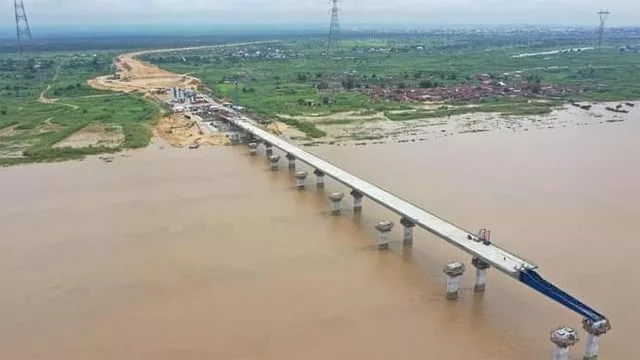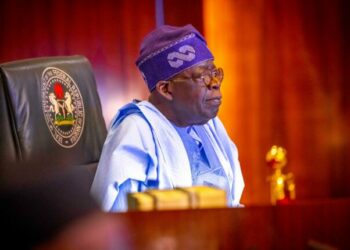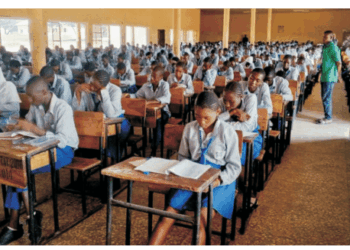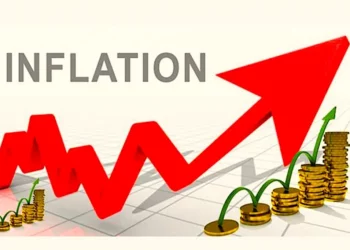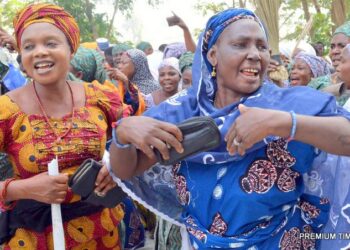Going by pronouncements emanating from politicians, the Second Niger Bridge is almost completed today. In fact, it was temporarily opened during the 2022/2023 festive season and closed again for final touches, which had been delayed due to the 2022 nationwide flood. The federal government recently announced that the bridge will be commissioned by May 15, 2023.
The Buhari Administration scores high appertain the progress made so far on that project considering the fact that various administrations, military and civilian had virtually neglected that cause for more than three decades.
Among the many infrastructural developmental projects currently being undertaken by the federal government, the Second Niger Bridge is arguably one of the most strategic for the advancement of economic growth because the South East zone is considered a strategic industrial, trade hub, and a major player in Nigeria’s economic growth.
The Second Niger Bridge is a key national infrastructure, with immense socio-economic benefits for the contiguous states and indeed the entire nation.
Upon completion, the bridge will ease traffic flow, improve road safety, and create greater opportunities for local residents by advancing the commercial viability of the immediate area and regenerating economic life.
The scope of work includes the construction of a 1.6 km long bridge, 10.3 km highway, Owerri interchange, and a toll station.
As laudable as the project is, it is worthy of note that this project had been mulled over for more than 30 years.
The project was first proposed during the 1978/79 political campaign by then-candidate Shehu Shagari of the National Party of Nigeria (NPN).
Then in 1987, after a warning about the state of the existing River Niger Bridge by the then minister for works and housing, Abubakar Umar, General Ibrahim Babangida challenged the local engineers to design the Second Niger Bridge. Rising to the challenge, the Nigerian Society of Engineers (NSE) Prems Limited subsequently delivered a master plan. Then there was the addition of the East–west Railway Line to the project. Unfortunately, the turmoil that precipitated the end of Babangida’s administration stalled the plan.
Under the subsequent military governments, the project received little attention. Upon the return to civilian rule, President Olusegun Obasanjo promised to deliver a second Niger River bridge. However, his administration did not carry out any major activity on the project until five days before he handed it over to the then-incoming administration of Umaru Musa Yar’adua, when Obasanjo flagged off the project in Asaba.
The incoming administration effectively inherited a ₦58.6 billion proposed cost for a six-lane, 1.8 km tolled bridge, which was to be completed in three-and-half years. The bridge was to be financed under a public-private partnership (PPP) with 60 per cent of the funding coming from the contractor, Gitto Group; 20 per cent from the Federal Government of Nigeria, and 10 per cent from the Anambra and Delta State governments. Unfortunately, the subsequent death of President Yar’adua marred the progress of the project.
However, in August 2012, the Federal Executive Council under President Goodluck Jonathan approved a contract worth ₦325 million for the final planning and design of the bridge. During the 2011 Nigerian general election campaign period, Jonathan promised that if elected, he would deliver the project before the end of his term in 2015. At an Onitsha town hall meeting on August 30, 2012, he promised to go into exile if he did not deliver on the project by 2015.
The rigmarole continued under the President Muhammadu Buhari administration, who first cancelled the earlier contract in August 2015.
The current administration has no doubt put the project on the front burner. With the project at least more than 98 per cent completed, the federal government has promised to deliver on its promise of putting the structure into use before the end of this administration.
That promise has been iterated by the Minister of Works and Housing. We caveat, though, that fulfilling that promise as and when due would have financial implications, as the minister recently disclosed that the cost of the project would be reviewed upward. That suggests a challenge to meeting up to schedule.
Considering the fact that the idea of a Second Niger Bridge was first mulled in 1978, and is still being clamoured for in 2023, President Buhari would doubtless be creating a legacy for himself if he were to deliver on that front.
But in the interest of the masses, we urge the federal and state governments to be most impacted by the completion of the Second Niger Bridge to galvanise all of their resources to ensure that that laudable project is realized come May 2023.

